Egypt’s Thriving Fruit & Vegetable Industry
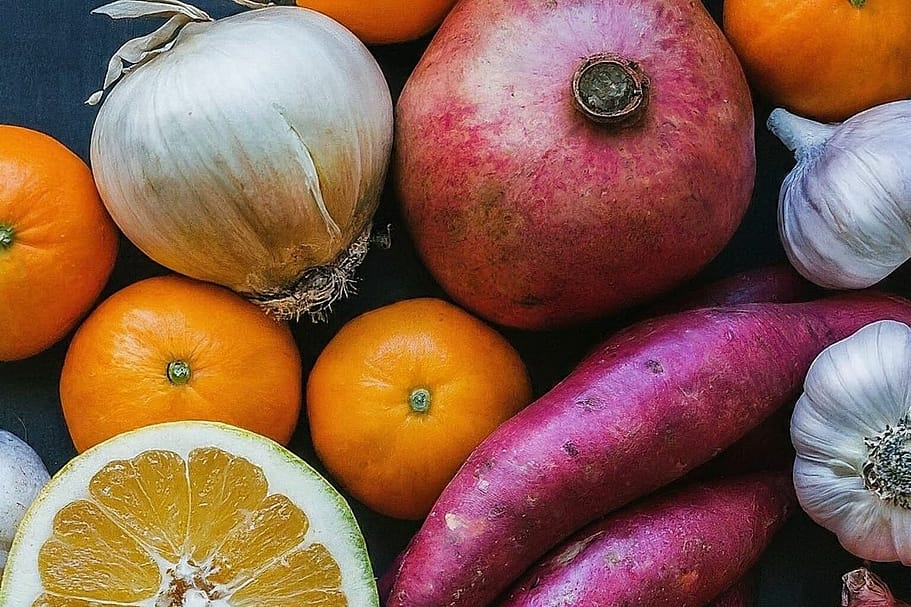
The Nile’s Harvest: A Deep Dive into Egypt’s Flourishing Fruit and Vegetable Industry
Egypt, the cradle of civilization, boasts a rich agricultural history dating back millennia. Nourished by the life-giving waters of the Nile River, fertile fields across the nation produce a vibrant tapestry of fruits and vegetables, propelling Egypt to a prominent position in the global fruit and vegetable trade. This article delves into the heart of this thriving industry, exploring the diverse produce, the dedicated farmers, and the intricate export network that connects Egyptian bounty with international markets.
A Land Blessed by Nature:
Egypt’s unique geographical location plays a critical role in its agricultural prowess. The vast expanse of the Sahara Desert acts as a natural barrier, shielding the Nile Valley from excessive heat and sandstorms. Meanwhile, the Mediterranean Sea provides a moderating influence on temperatures, creating a warm yet temperate climate ideal for a wide range of crops. The rich alluvial soil deposited by the Nile River over millennia provides exceptional fertility, requiring minimal additional fertilizers for optimal growth.
A Bounty of Fruits:
Sunshine bathes Egypt throughout the year, nurturing a diverse range of fruits. Egyptian oranges are a global commodity, prized for their sweetness and juicy flesh. Lush orchards throughout the country yield a variety of citrus fruits, including grapefruits, mandarins, and lemons. Beyond citrus, Egypt boasts an impressive selection of other fruits. Pomegranates, with their jewel-toned arils bursting with flavor, are another Egyptian fruit gaining international recognition. Dates, a symbol of hospitality in Egyptian culture, are grown in abundance, particularly in the desert oases. Figs, with their delicate sweetness, and melons, offering a refreshing treat during the hot summer months, are also cultivated extensively.
A Symphony of Vegetables:
Vegetables are equally abundant in Egypt, forming the cornerstone of the national cuisine. The humble onion, a ubiquitous ingredient in countless dishes, is cultivated in vast quantities. Garlic, another essential aromatic, adds its pungent charm to stews and sauces. Beyond these staples, Egyptian farmers grow a wide variety of vegetables throughout the year. Vibrant green beans, plump tomatoes, earthy potatoes, and crisp cucumbers are just a few examples. Eggplants, with their smooth, glossy skin, come in a variety of shapes and sizes, while okra, with its unique pod-like structure, adds a distinctive texture to stews. Leafy greens, such as spinach, kale, and Swiss chard, provide essential vitamins and minerals, while legumes like chickpeas, lentils, and fava beans are a valuable source of protein.
The Art of Cultivation:
Egyptian farmers have honed their agricultural skills over millennia, adapting to the unique challenges and opportunities presented by the Nile River and the surrounding environment. Modern irrigation techniques, such as drip irrigation, are widely employed to conserve water, a precious resource in the arid region. Farmers utilize greenhouses and shade netting to optimize growing conditions for specific crops, extending the growing season and protecting delicate produce from the harsh sun. Integrated pest management strategies minimize the reliance on synthetic pesticides, ensuring the health of both crops and the environment.
The Dedicated Hands that Feed the Nation:
Millions of Egyptians dedicate their lives to cultivating this bounty. Generations of knowledge and expertise are passed down within families, creating a deep understanding of the land and its rhythms. Small-scale farmers, working meticulously on their plots, contribute significantly to the overall production. Larger farms, often utilizing advanced technology and machinery, play a crucial role in meeting the demands of the domestic market and international exports.
A Journey from Farm to Fork (and Beyond):
Egyptian exporters play a vital role in bringing these treasures to the world. Modern technologies and improved infrastructure allow farmers to optimize yields and ensure consistent quality. State-of-the-art packing and processing facilities ensure fresh produce is carefully sorted, graded, and packaged to meet international standards. Cold storage facilities with advanced temperature control systems maintain the freshness of fruits and vegetables during transportation. Fruit exporters leverage Egypt’s strategic location at the crossroads of three continents to efficiently ship fresh produce to international markets. Mediterranean ports provide access to Europe, while the Red Sea offers a vital trade route to Asia.
The Engine of Economic Growth:
This thriving export industry not only generates valuable foreign currency for Egypt but also creates jobs and boosts the national economy. The cultivation, processing, packaging, and transportation of fruits and vegetables provide employment opportunities for millions of Egyptians across various sectors. The foreign currency generated through exports allows Egypt to invest in infrastructure development, healthcare, and education, further propelling economic growth.
Challenges and Opportunities:
Looking ahead, Egypt’s fruit and vegetable industry faces exciting challenges. Implementing sustainable farming practices that conserve water and reduce environmental impact will be crucial for long-term success. Water scarcity is a constant concern, and exploring alternative irrigation methods and optimizing water usage
.exploring alternative irrigation methods and optimizing water usage through improved infrastructure are essential steps. Research into drought-resistant crop varieties and soil management techniques will also contribute to long-term sustainability.
Another challenge lies in minimizing post-harvest losses. Bruising, spoilage, and improper storage can significantly reduce the amount of produce reaching consumers. Investing in improved storage facilities, transportation infrastructure, and post-harvest handling techniques will ensure a higher percentage of fruits and vegetables reach their final destination in optimal condition.
Investing in the Future:
Egyptian exporters recognize the importance of continuous innovation. Research and development programs are underway to cultivate new varieties with improved disease resistance, higher yields, and better shelf life. These advancements not only benefit farmers but also enhance the competitiveness of Egyptian produce in the global market.
A Cultural Tapestry:
Fruits and vegetables are not merely commodities in Egypt; they are deeply woven into the cultural fabric. Pomegranates, with their numerous seeds, symbolize fertility and abundance, often featuring in wedding ceremonies. Dates, a symbol of hospitality, are traditionally offered to guests. Figs, mentioned in ancient texts, hold religious significance. Beyond their symbolic meaning, fruits and vegetables play a vital role in Egyptian cuisine. Dishes like ful medames (fava bean stew), kushari (lentil and pasta dish), and molokhia (green stew) showcase the versatility and flavor of Egyptian produce.
A Global Connection:
The export of fruits and vegetables strengthens Egypt’s position in the global community. It fosters international trade partnerships, promoting cultural exchange and understanding. Egyptian produce provides a healthy and delicious option for consumers worldwide, contributing to global food security. As Egypt continues to develop its fruit and vegetable industry, it positions itself as a reliable and innovative supplier, ensuring a vibrant future for the Nile’s harvest.
Looking Ahead: A Sustainable and Prosperous Future
The future of Egypt’s fruit and vegetable industry is brimming with potential. By embracing sustainable practices, investing in research and development, and upholding the rich cultural significance of its produce, Egypt can guarantee a thriving agricultural sector for generations to come. Implementing organic farming methods and exploring alternative fertilizers can further reduce environmental impact. Additionally, fostering partnerships with international research institutions can accelerate the development of innovative technologies and crop varieties.
With a continued focus on quality, efficiency, and sustainability, Egypt’s fruit and vegetable industry is poised to flourish. The dedication of its farmers, the innovation of its exporters, and the bounty of the Nile River ensure that Egyptian produce will continue to grace tables around the world, offering a taste of the rich heritage and vibrant flavors of this ancient land
Explore
-

Fruit Logistica 2024 with the IPD
-

From Pharaohs to Ports: Egypt's Produce Export Journey
-
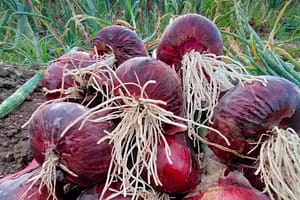
Egyptian Red Onion: Now Available with the Best Price!
-
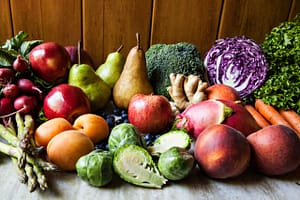
A Guide to Egyptian fruit and Vegetable Exporters and Growers
-
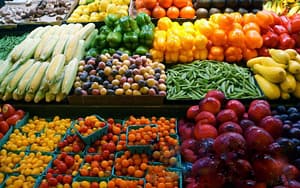
Why You Should Import Egyptian Fruits and Vegetables
-
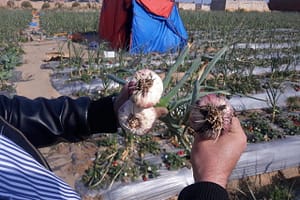
Egyptian garlic: Reasons behind importers' growing preference for it
-
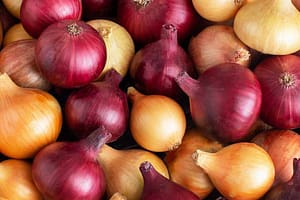
Unveiling the Superiority of Egyptian Onions in the Global Export Market
-
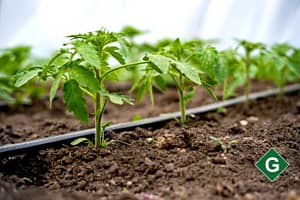
Drip Irrigation: Nurturing Crops, Preserving Resources
-

VIDEO: 2024 Fruit Logistica Summed Up - Valuable Insights
